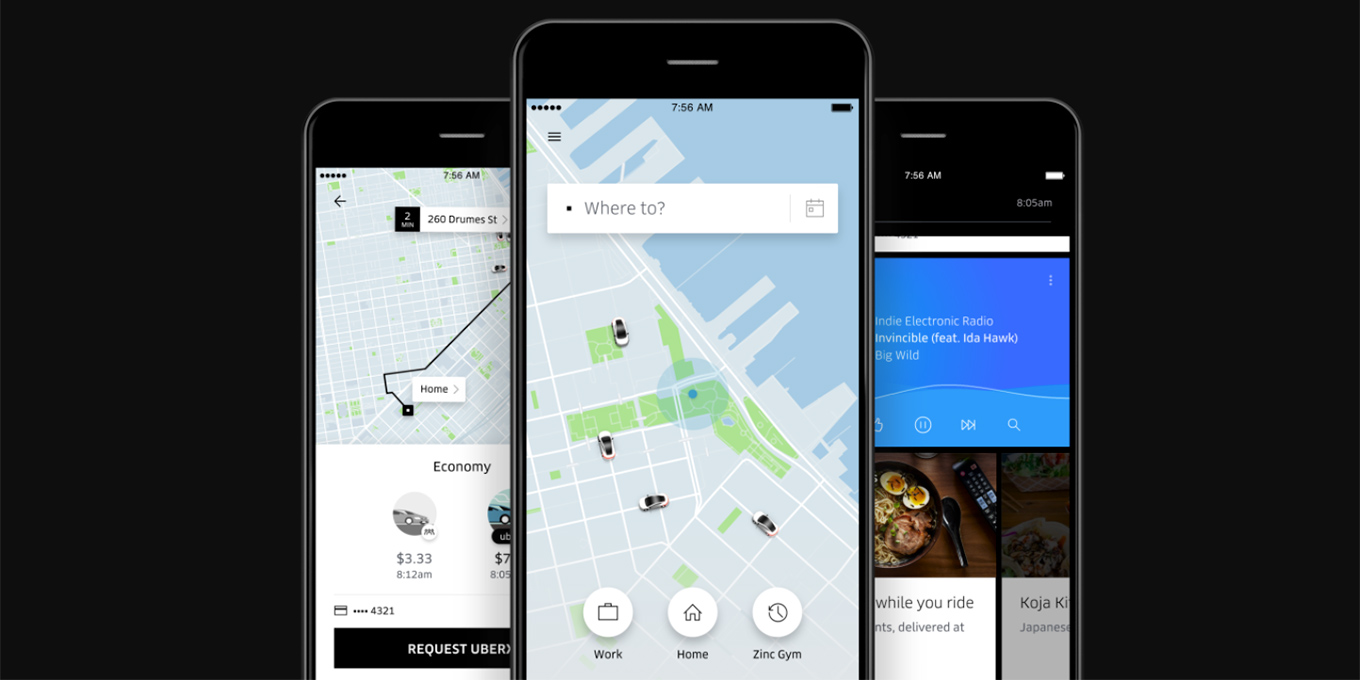Society
Uber is Offering Support to Domestic Violence Survivors
The ride-share service has partnered with Canadian organizations to provide transportation to women and gender-diverse people fleeing domestic violence.
by : Hannah Ziegler- May 5th, 2020

Uber has announced three new Canadian partnerships with YWCA Canada, Le Chaînon in Quebec and Ending Violence Association in B.C., to provide free rides for women and gender-diverse people who need to leave their homes due to domestic violence. Since the start of the COVID-19 pandemic, reports of domestic violence against women have surged globally. In Ontario, York Region Police have reported a 22 percent increase in reported cases while Vancouver Battered Women’s Line has seen a 300 percent increase in cases.
“We’ve asked Canadians to stay home to prevent the spread of COVID-19. But not every home is a safe home,” said Maryam Monsef, member of parliament and Minister for Women and Gender Equality and Rural Economic Development, in a statement. “To women and children suffering violence and trauma in abusive homes: there are hundreds of organizations across the country to support you. Uber is partnering with Canadian organizations to offer rides to safety plus additional supports. This is another layer of support and I hope it is another reminder that you are not alone.”
This initiative is part of Uber’s global pledge to provide 10 million free rides, meals and food deliveries during the pandemic. The company has also committed to working with gender-based violence organizations globally on awareness, education and prevention of sexual assault and domestic violence after a recent safety report conducted by Uber found more than 3,000 people were sexually assaulted while using their service in the United States in 2018.
Maya Roy, CEO of YWCA Canada, says their organization typically offers immediate assistance to women and gender-diverse people fleeing violence, domestic abuse, as well as offering referral services to counselling and violence prevention programs. However, the scope of COVID-19’s impact on women, gender-diverse people and marginalized communities is vast and services have had to be modified.
Roy offers one recent example of a situation, in which she was trying to help a woman access a shelter, where Uber services would have been beneficial. “She was in one part of Ontario, and we were trying to figure out how to get her to the shelter in another region, but there was no public transportation,” she explains. “In the parts of her region where there was public transportation, it was pretty much shut down. Buses were only running once an hour.” She notes that public transit is not always a safe option, citing the report of the National Inquiry into Missing and Murdered Indigenous Women and Girls, as an example of how accessing public transit can be dangerous for Indigenous women, even in daylight. Roy also says that they are looking at scaling up removals of abusers from homes, rather than having the survivor and/or children leave.
Those looking to access these services can reach out directly to YWCA Canada, Le Chaînon or Ending Violence Association. If you’re in a safe situation, check in on neighbours, family and friends. “Get a sense if anything has changed,” says Roy. “Keep an eye on the women and gender-diverse people in your community, because I think the only way we’re going to get through this [pandemic] is through community.” This includes using the recently implemented Signal for Help sign, which the Canadian Women’s Foundation created to help those being monitored on devices to silently notify others that they are in danger.
READ MORE:
Self-Isolation Is Fuelling a Rise in Gender-Based Violence
Newsletter
Join our mailing list for the latest and biggest in fashion trends, beauty, culture and celebrity.
Read Next

Fashion
Tap Into the Tenniscore Aesthetic With These Stylish Pieces
Game, set, match!
by : Lauren Knowles- Apr 23rd, 2024

Fashion
Reitmans and The Birds Papaya Just Dropped The Dreamiest Spring Collection
Welcome to Sarah's Playhouse.
by : Melissa Fejtek- Apr 22nd, 2024

Culture
This University Elevates Women to New Professional Heights
You shouldn’t have to pause your life to move forward in your career.
by : ELLE Canada- Apr 16th, 2024




